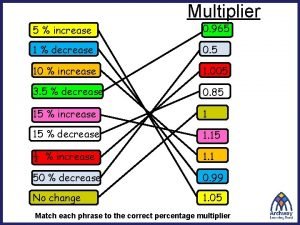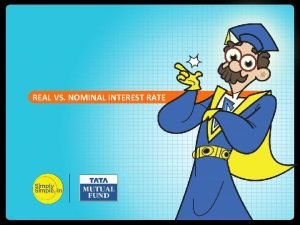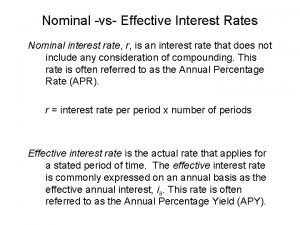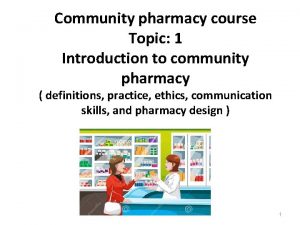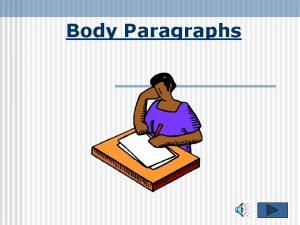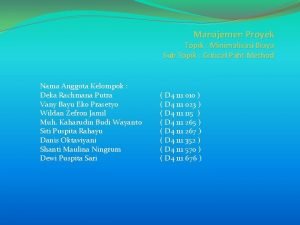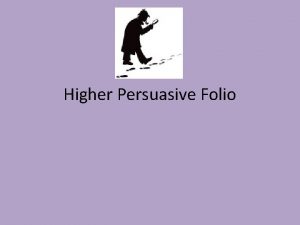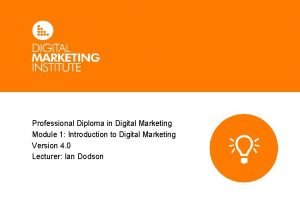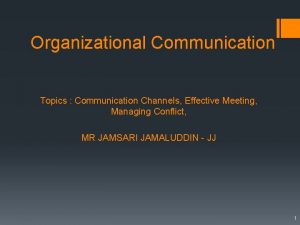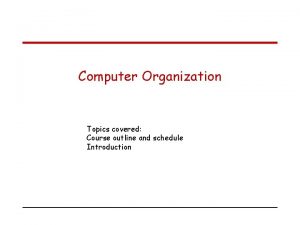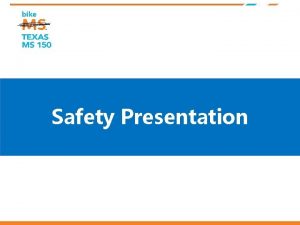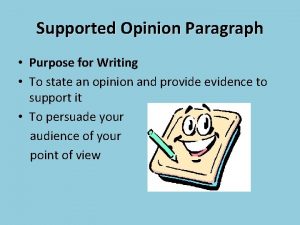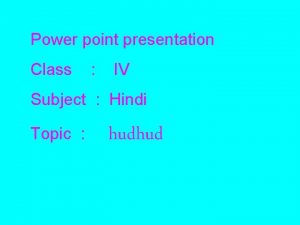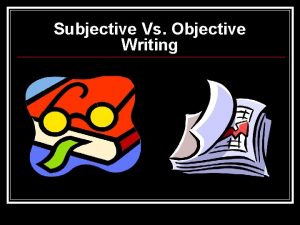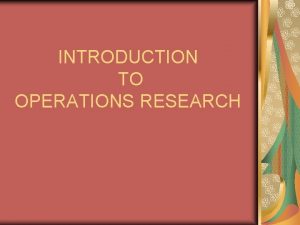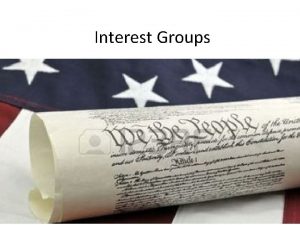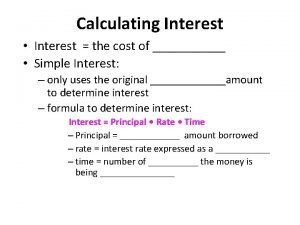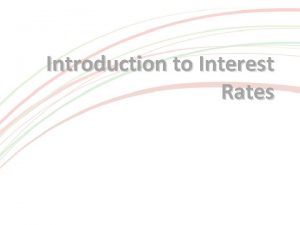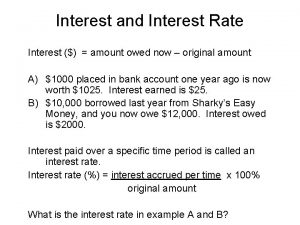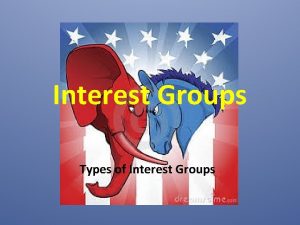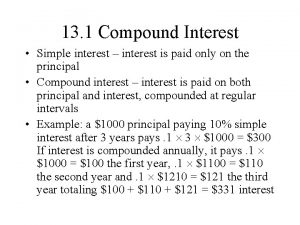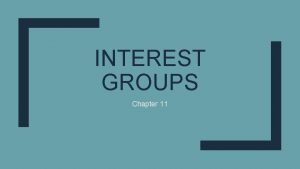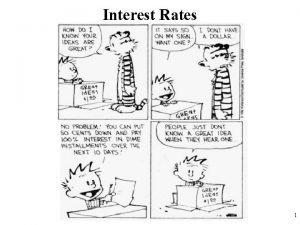Topics of Interest Topics of Interest Topics of






































- Slides: 38

Topics of Interest

Topics of Interest

Topics of Interest

K-W-L

Directions: Complete all warm-ups on one sheet of paper. Keep them all together. All warm-ups must be 4 sentences minimum. I will collect them after every 10 we do. Warm-Up #1: What are some questions you have about teenage beliefs, habits, or behavior?

Directions: Complete all warm-ups on one sheet of paper. Keep them all together. All warm-ups must be 4 sentences minimum. I will collect them after every 10 we do. Warm-Up #2: Who was Sigmund Freud and what did he believe influences human behavior the most? What were some of his most controversial ideas?

Directions: Complete all warm-ups on the same sheet of paper. Keep them all together. All warm-ups must be 4 sentences minimum. I will collect them after every 10 we do. Warm-Up #3: What idea did B. F. Skinner & John Watson advocate for? How did their ideas differ from Sigmund Freud’s?

Directions: Complete all warm-ups on one sheet of paper. Keep them all together. All warm-ups must be 4 sentences minimum. I will collect them after every 10 we do. Warm-Up #2: Out of the three options below, what do you think affects human behavior the most? Explain your reasoning. Provide examples to illustrate your point of view. • Genes/Biology: e. g. What we are born with • Learning Experiences: e. g. Rewards and punishments • Conflicts hidden within the subconscious: i. e. Things that bother us that we don’t think about

Intro to… Unit 1

Introduction What is Psychology? Psychology is the scientific study of behavioral & mental processes (both animal and human) a. Studies why people think, feel, and do what they do b. The study of individual and group behaviors

Who Uses Psychology? Counselors/Therapists Criminal Justice System– Is this person sane & culpable? Businesses – Is this person a good fit for our team? Does this person have the right personality to work well with our company? Animal Trainers YOU! – You wonder why people do what they do and why they’re so crazy

I. Historical Foundations Founders of Modern Thought 1. Wilhelm Wundt • Founder of modern psychology. • Formed the first psychology lab in Germany in 1879. • Made psychology a science by applying the scientific method to questions on human behavior.

2. William James (Late 1890 s) • Created an approach called functionalism which emphasized the evolutionary purpose/function of behavior • Functionalism asks how behavior helps a person adapt to the environment

3. Sigmund Freud (early 1900 s) • Made popular the notion of the unconscious/subconscious mind • Founder of psychoanalysis which treats disorders by investigating subconscious elements being repressed • Believed the subconscious expressed itself in mental illness, dreams & “slips of the tongue” (called Freudian slip)

http: //www. youtube. com/w atch? v=Hpu_i. Es. ISu. I Political slips (2 min)

Freud Continued… • Freud believed people’s problems stem from emotional trauma that originated in childhood…Like Macaulay Culkin from Home Alone! http: //www. youtube. com/watch ? v=mgk. V 2 Ux 0 Cp. Y&sns=e m (1 min)

Freud Continued… • Freud concluded that the sexual drive was the most powerful shaper of a person's psychology His most well-known theory is that of the "Oedipus complex" -- that in children (boys, that is) there is a sexual attraction towards the mother and a sense of jealousy to the point of hatred of the father.

4. John Watson (early 1900 s) and B. F. Skinner • Advocated behaviorism – the study of visible behavior, not thoughts or feelings which cannot be measured • Skinner believed studying unobserved thoughts/feelings was unscientific • Believed every behavior is the result of learning experiences of rewards and punishments

“The Growth of Psychology” Read p. 13 -17: Freud-Skinner

Developmental Draw this web and provide at least 2 examples or descriptions under each category -Studies human growth -Adolescent Psych Personality Social Branches of Psycholog y Physiologica l/Biological Experimental Clinical/ Counselin g

II. Research Methods (p. 8) 1. Psychology is considered a branch of science as it relies on the scientific method to answer questions. a. Pose a question e. g. Why do so many people believe in the illuminati?

b. Develop a hypothesis (a testable prediction) to describe what you observe & answer your question e. g. Some people believe in the illuminati because of the “Da Vinci Code” movies/books. d. Test the hypothesis e. g. Create a survey in which 100 people who believe in the illuminati are asked WHY they believe in it.

2. Research Methods in Psychology ① Naturalistic Observation – Behavior is observed in natural setting (not in a lab) ② Case Study – Detailed study of a single individual ③ Survey – Gathers data through questionnaires & interviews *Useful for DESCRIBING events, not explaining them

Example Survey Thing being measured in your survey: Social media usage per day Bad Question: How much social media do you use per day? Good Question: How many hours per day do you use Facebook?

How to Tally Responses Question Sheet Question 1: How many hours per day do you use Facebook? 0 -1 1 -2 2 -3 More than 3 Response Sheet Question #1 0 -1: 1 -2: 2 -3: More than 3:

When creating questions that ask for opinions, be sure to provide all possible options such as… Often Sometimes Not very often Never OR Very Likely Somewhat Likely Neutral Unlikely


④ Correlation Research – Measures the strength of the relationship between 2 variables a) A positive correlation means that if one variable increases/decreases, the other variable increases/decreases with it e. g. The more years of education you complete, the higher your earning potential will be. The less education you have, the less your income potential will be.

b) A negative correlation means that when one variable decreases, the other increases – i. e. as one goes up, the other goes down e. g. A student with many absences experiences a decrease in grades *Correlation research demonstrates possibility of cause, but can’t prove it

⑤ Experimental Research – Researcher manipulates events under controlled conditions & measures the effects of those manipulations on behavior *Experiments are useful for EXPLAINING cause-and-effect relationships between variables

A. Experiments require an experimental group & a control group i. Experimental Group – Participants subject to experimental manipulation or change ii. Control Group – Participants not subject to experimental manipulation or change. The control ensures the behavior being studied doesn’t naturally occur without manipulation. e. g. In a study to see if sleep-deprived people drive worse than non-drowsy drivers, one group (the experimental group) is selected to drive a course with only 3 hours of sleep and another group (the control group) is selected to drive the same course with 8 hours of sleep.

B. Ethical Guidelines § § § No physical/emotional harm to participants No deception that will affect their willingness to participate Experiments that violate the guidelines are unethical

Hypothesis (Testable Prediction) Ladies use the restroom together more than guys so they can socialize. Men respond more violently to conflict than women As poverty rises, so does criminal behavior Children behave worse at school than at home Watching violent shows makes children more Research Method Explanation of Choice

Structuralis m Wilhelm Wunt Facts _Founder of Psychology_________________

William James Facts _______________ _ ________ Functionalis m

B. F. Skinner & John Watson Facts _______________ _ ________ Behavioris m

Sigmund Freud Facts ______________ Psychoanaly sis

https: //www. youtube. com/w atch? v=vo 4 p. MVb 0 R 6 M - Crash Course: Intro to Psych. (11 min)
 Compound interest multiplier
Compound interest multiplier Nominal v. real interest rates
Nominal v. real interest rates Nominal interest rate
Nominal interest rate Hiring at hot topics
Hiring at hot topics Community pharmacy management
Community pharmacy management Features of restoration comedy of manners
Features of restoration comedy of manners Advanced topics in software analysis and testing
Advanced topics in software analysis and testing Gmp training materials
Gmp training materials Conclusion for body paragraph
Conclusion for body paragraph Spse structure example
Spse structure example Numerical methods final project
Numerical methods final project Customer service discussion topics
Customer service discussion topics Names of maps in mathematical literacy grade 12
Names of maps in mathematical literacy grade 12 Enlightenment salon party answer key
Enlightenment salon party answer key Topics why
Topics why Efl research topics
Efl research topics Python basic topics
Python basic topics Formal email introduction
Formal email introduction It management project topics
It management project topics Persuasive tones
Persuasive tones Practice act writing prompts
Practice act writing prompts Digital marketing topics
Digital marketing topics Impulsive, emotional romeo acts as a character foil for
Impulsive, emotional romeo acts as a character foil for Organizational communication topics
Organizational communication topics Computer organization topics
Computer organization topics Sports nutrition topics
Sports nutrition topics Safety presentation topics
Safety presentation topics Advanced topics in web development
Advanced topics in web development Peel point evidence
Peel point evidence Key topics
Key topics Supporting opinions
Supporting opinions Topics for powerpoint presentation for class 4
Topics for powerpoint presentation for class 4 What topics will be covered in this unit
What topics will be covered in this unit Is writing subjective
Is writing subjective Operation research
Operation research Anime topics
Anime topics Bell ringer topics
Bell ringer topics Nuclear physics topics for presentation
Nuclear physics topics for presentation Adjective classification
Adjective classification
